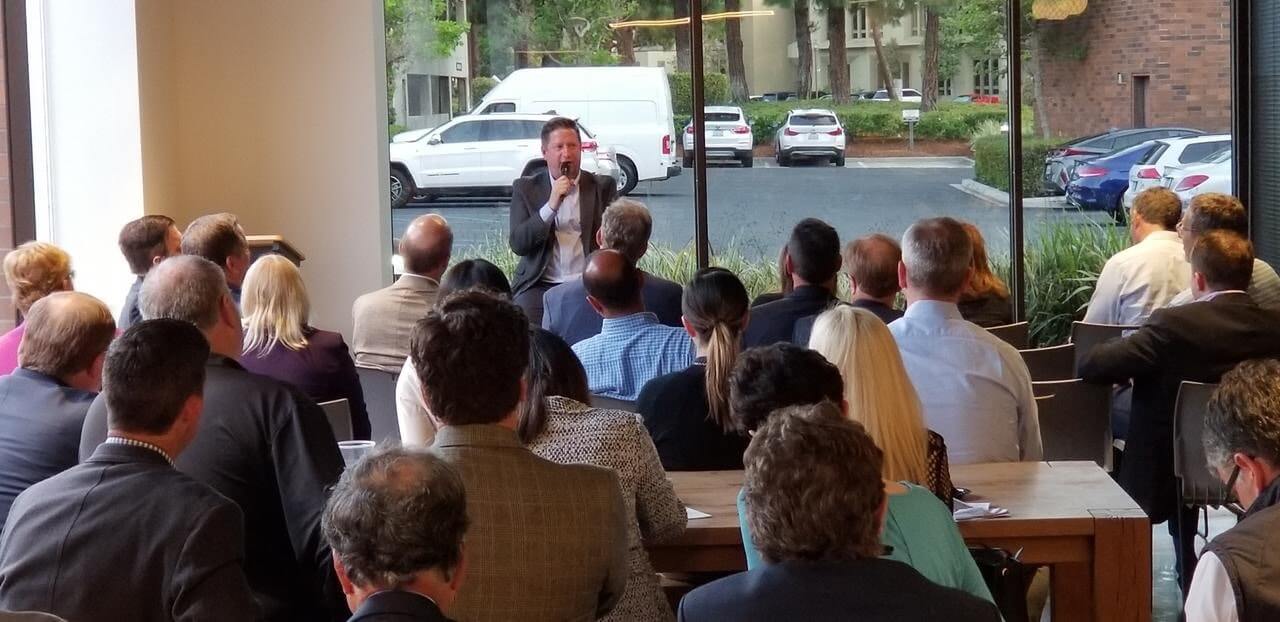My favorite book on private equity is The Private Equity Playbook by Adam Coffey. It’s easy to read, the math is simple and impactful, and the stories are based on a former CEO who understands the intricacies behind private equity. Adam has released the second edition of this book, which is about 20 percent longer with new material. This conversation addresses the continued growth of private equity, committed capital, Adam’s 70-30 rule, and a funny locksmith story.
Episode Highlights
- Adam’s book cadence, and now his fourth with this second edition of The Private Equity Playbook
- The drivers behind the rise of private equity firms during the past few years
- Committed capital explained and what would happen to a firm’s return if they took all investor money upfront
- A peak behind bank term sheets on highly leveraged deals
- We’re not talking about institutional investing
- Mark loves the 70-30 Rule, but why not 60-40 or 80-20?
- Sellers who stay on for a second paycheck cannot be passive owners, and why each payday gets incrementally bigger
- “The accidental arrogance of owner success”
- A few key (yet simple) numbers: IRR, MOIC, and a few more
- Adam’s experience with hands-on and hands-off private equity firms and why it matters
- The funny but not-so-funny story in the laundry business
In this revised and expanded edition, Adam Coffey shares his unmatched experience as a CEO and helps you start understanding the private equity landscape.
Books Mentioned on the Show
- Anything by Sandy Og
- Good to Great by Jim Colliins
- The Millionaire Next Door: The Surprising Secrets of America’s Wealthy by Thomas Stanley
- The Millionaire Mind by Cotter, Stanley, and Danko
- Adam’s other books
Bookclub Questions
If you belong to a mastermind group or get together with other entreprenuers where books are discussed, I recommend both editions of The Private Equity Playbook are great (I recommend the newest edition because of the additional content). This is a book that will play nicely in a group setting where ideas and additional questions can be shared with others participating. As a kickstarter, here are 10 questions for the bookclub experience:
- On page 17 of the Kindle version, Adam explains what an investor is in a private equity firm. He states they have “no decision-making authority” over the PE firm. If money is not an obstacle, would you be a good PE investor? Why or why not?
- If you are Josh, a business owner being courted by a private equity group, what due diligence questions will you ask their leadership team? If you need help, refer to page 59 in the Kindle edition.
- How do private equity firms make money? Does this model make sense, and is it fair and rational? Explain your reasoning.
- In simple terms, explain the differences between IRR, MOIC, and DPI and why each are important. Which measure resonates the most with you, and why?
- If you were advising Josh, what direction would you pint him in with respect to outside counsel and tax advice?
- When does an earnout make sense between a business seller and the PE fund? Why?
- Adam states that, “Most entrepreneurs don’t value rollover equity.” Why is that the case? If Josh has this mindset, what would you say to him?
- Why are consultant fees and EBITDA add-back as discussed in chapter nine?
- After reading the chapter on margin expansion, have each owner be prepared to discuss one idea they would apply to grow their free cash flow.
- Adam’s view of consultants has changed over the years. Think about one area of your business that is either stuck, lagging, or becoming an obstacle to growth. How could the right consultant help to eliminate that problem?
Important Links
Episode Pairings



A special thanks to Kelly Teemer for helping to make this conversation a reality. Title photo attribution: provided by Kelly Teemer and used with permission.


Leave a Reply